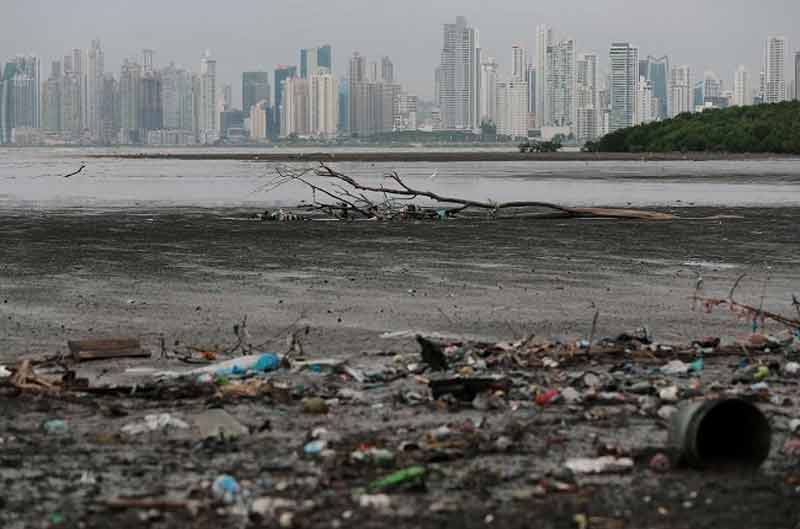
Panama on July 20 became the first Central American nation to ban single-use plastic bags to try to curb pollution on its beaches and help tackle what the United Nations has identified as one of the world's biggest environmental challenges.

Plastic waste pile and debris are seen up
near the beach in Panama City, as Panama becomes the first country in Central
America to ban all single-use plastic bags, in Panama July 19, 2019.
The isthmus nation of roughly 4 million people joined more than
60 other countries that have totally or partially banned single-use plastic
bags, or introduced taxes to dissuade their use, including Chile and Colombia
in the region.
Supermarkets, pharmacies and retailers
in Panama must stop using traditional polyethylene plastic bags immediately,
while wholesale stores will have until 2020 to conform to the policy approved
in 2018. Fines can be applied for non-compliance but there are exceptions for
the use of plastic bags for sanitary reasons, such as with raw food.
On the streets of Panama City, signs
with the phrase "less bags, more life" reminded passersby that the
measure had gone into effect.
"This seems like a good measure
because you avoid continuing to pollute the streets and the community,"
said Victoria Gomez, a 42-year-old secretary in downtown Panama City.
Birds, turtles, seals, whales and fish
often become entangled or ingest the remnants of plastic bags in Latin America,
one of the most biodiverse regions in the world. Along Panama's coast, it is
common to see plastic waste littering beaches, especially near populated areas.
Given projected growth in consumption, without
new anti-pollution policies oceans are expected by 2050 to contain more
plastics than fish by weight, according to the New Plastics Economy report
published by Ellen MacArthur Foundation in 2016. The report also found that the
entire plastics industry will consume 20% of total oil production by then.
Source: NDO
Many countries are grappling with rapidly aging population. As population aging becomes an irreversible global trend with significant impacts on economic and social sectors, nations face the urgent task of creating flexible policies to adapt to and make the most of this trend to build prosperous and sustainable societies.
With a series of stimulus measures, the world tourism industry is on the way to recovery as before the COVID-19 pandemic broke out. Facing the opportunity to take off, the "smokeless industry” is expected to strongly contribute to global economic growth while promoting potential and cohesion, contributing to peace and sustainable development.
The danger from the COVID-19 pandemic is still latent, threatening people’s health and lives in the context that the immunity provided from the COVID-19 vaccine has decreased. Many other dangerous diseases are also likely to break out when the global vaccination rate slows down, due to inequality in access to health services, vaccine hesitancy, and consequences of economic recession.
The Association of Southeast Asian Nations (ASEAN) is witnessing a rise in the sales of electric vehicles (EVs) in Vietnam, Malaysia and Indonesia, according to Maybank Investment Bank Research (Maybank IB Research).
The respect paying ceremony for Party General Secretary Nguyen Phu Trong continued on the morning of July 26 at the National Funeral Hall in Hanoi, with high-level delegations from foreign countries and international organisations paying their last respects and expressing deep condolences.
A wave of condolences have poured in from world leaders, international organisations, rulling parties, Communist parties and partner parties following the death of Vietnamese Party General Secretary Nguyen Phu Trong.



